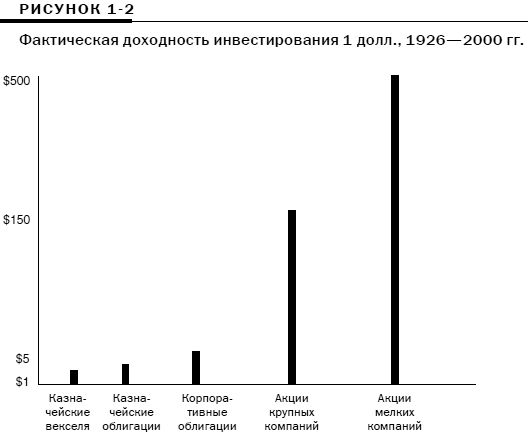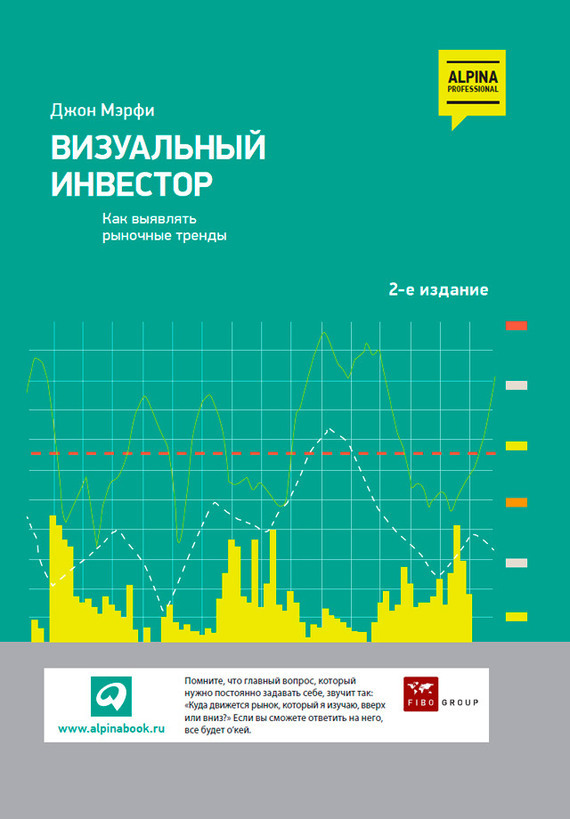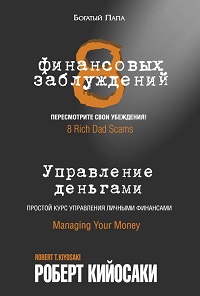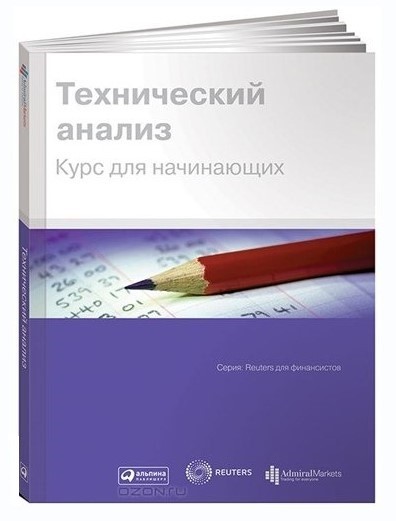
The order and terms of storage of accounting documents. Storage of documents. Shelf life, destruction and disposal of primary accounting documents
Bookkeeping is the most paper division of any company. But you need to get rid of all kinds of documents competently. They should be stored for at least a few years. And some documents cannot be destroyed for as long as 75 years! So how many accounting papers should “live”?How much to store documents
Of course, documents should be stored at least as long as tax inspectors may require them during verification. On the basis of paragraph 4 of Article 89 of the Tax Code of the Russian Federation, they can verify a period not exceeding three calendar years preceding the year the audit decision was made. So, the documents of the previous three years must be stored.
Meanwhile, tax law adds another year to this period. According to subparagraph 8 of paragraph 1 of Article 23 of the Tax Code of the Russian Federation, taxpayers are required to ensure the safety of documents required for the calculation and payment of taxes for four years. These include accounting and tax accounting data, as well as documents confirming the receipt of income, expenses and payment (withholding) of taxes. A similar requirement is established for tax agents (subparagraph 5, paragraph 3, article 24 of the Tax code of the Russian Federation). And from what moment to count the four-year period?
Taxes are calculated based on the results of tax periods (Clause 1, Article 55 of the Tax Code of the Russian Federation). It turns out that the four-year period must be counted from the day after the end of the tax period. For example, let’s take VAT: until what date do you need to keep documents related to the calculation of this tax for the IV quarter of 2004? The four-year term starts on January 1, 2005, and ends on December 31, 2008. It turns out that in 2008 it is necessary to keep the documents of 2004. That is, a year that does not fall under the field inspection.
Shelf life of documents is established in the legislation on accounting. From article 17 of the Federal Law of November 21, 1996 No. 129-ФЗ "On Accounting" (hereinafter - the Law on Accounting) it follows that:
- primary accounting documents, accounting registers and financial statements must be stored for periods established by the rules of state archiving, but not less than five years;
- accounting policy documents and machine data processing programs must be stored by the organization for at least five years after the year in which they were used for the preparation of the financial statements for the last time.
A few exceptions to the general rule
So, as a general rule, you need to keep paper for at least five years. This is the maximum period set by the Law on Accounting. At the same time, the maximum tax audit depth is three years. Therefore, it is especially important to observe the safety of securities related to the calculation of taxes, precisely during this period. If you don’t have enough documents, say, five years ago, you can only be fined for violating the rules for storing documents.
Meanwhile, in some cases, the storage period of documents is determined by special rules. As a result, the absence of securities, even, for example, six years ago, can lead to fines for understating tax payments. We will analyze such situations separately.
“Primary” on the acquired property. Documents for the acquisition of fixed assets must be maintained regardless of the useful life of these objects. After all, securities are needed to confirm the initial value for the purposes of calculating depreciation, as well as property tax. In addition, without a “primary” company will not be able to confirm the value of the property when it is sold. And this applies both to fixed assets and other property (letter of the Ministry of Finance of Russia dated September 15, 2005 No. 03-03-02 / 84).
Special requirement for loss-making companies. The payer of income tax has the right to reduce the tax base of the current period for losses of previous tax periods in the manner prescribed by Article 283 of the Tax Code. Losses can be considered for the next 10 years. Since Chapter 25 of the Tax Code has been in force since 2002, this year’s loss can be used to reduce the company's tax burden up to and including 2012. Moreover, Article 10 of the Federal Law of August 6, 2001 No. 110-ФЗ allows the recognition of losses revealed at the end of 2001.
However, if a company carries forward losses for the future, then it is obliged to keep documents confirming the amount of loss incurred during the entire period of using this benefit (paragraph 4 of Article 283 of the Tax Code of the Russian Federation). This rule allows tax officers to claim documents for past losses that the company claims in a declaration for the current period. Based on this, the Ministry of Finance of the Russian Federation in a letter dated April 3, 2007 No. 03-03-06 / 1/206 clarifies that writing off losses is possible only upon presentation of primary documents confirming the financial result obtained.
True, the volume of losses can be confirmed by previously conducted tax audits, during which the “primary” related to them has already been investigated. In this case, repeated documentary verification is not required. This conclusion was reached by the Supreme Arbitration Court of the Russian Federation in its determination of June 6, 2008 No. 6899/08.
We add that the requirement to store documents for losses during the entire period of their write-off also applies to payers of a single agricultural tax (clause 5 of article 346.6 of the Tax Code of the Russian Federation) and for “simplified workers” (clause 7 of article 346.18 of the Tax Code of the Russian Federation).
Write-off of bad receivables. And in this case, documents will have to be stored for more than five years.
Recall: in accordance with subparagraph 2 of paragraph 2 of Article 265 of the Tax Code of the Russian Federation, the amount of bad debts is equal to the non-operating expenses of the taxpayer as a loss incurred in the reporting (tax) period. Such expenses reduce the tax base when calculating income tax. Naturally, in the presence of supporting papers.
Thus, the primary accounting documents substantiating the amount of receivables characterize the value of retiring property rights, that is, the amount of expense. Therefore, the countdown of the storage period of such documents must be re-started from the moment of writing off the bad debt. If you destroy the documents ahead of schedule, the company will lose the right to recognize bad debts in expenses, because it will not be able to confirm the amount to the tax authorities.
Period of storage of documents by joint stock companies. When storing documents, joint-stock companies should be guided by the Regulation approved by the Decree of the Federal Securities Commission of July 16, 2003 No. 03-33 / ps. In particular, according to this regulatory document, they are required to keep the charter and annual financial statements permanently. That is, during the entire life of the company. And in the event of the liquidation of the company, documents of a permanent storage period and personnel are transferred to the state archive. This is if an agreement was concluded with him. If there is no agreement with the archive, then he is obliged to accept for storage only documents on the personnel of the company's employees. The place of storage of the remaining documents is determined by the chairman of the liquidation commission or the bankruptcy trustee.
Tax reports. The company must keep annual tax returns for at least 10 years, and quarterly tax returns for five years, if any. This is determined by clause 170 of the List of model management documents generated by organizations, indicating the storage periods approved by the Rosarchive on October 6, 2000 (hereinafter referred to as the List of Typical Management Documents) in conjunction with clause 2.4.2 of the Guidelines for the application of the List. Quarterly reports should also be kept for at least 10 years, if not annual (for example, for VAT). But monthly reporting in the absence of quarterly forms must be stored for 5 years.
Invoices, books of purchases and sales. According to paragraphs 15 and 27 of the Rules for maintaining the logbooks of received and issued invoices, books of purchases and books of sales ... approved by Decree of the Government of the Russian Federation of December 2, 2000 No. 914, books of purchases and books of sales should be stored for a full five years from the date of the last records. That is, these papers for the IV quarter of 2004 should be kept throughout 2009.
A five-year shelf life has been set for invoices. The basis - paragraph 150 of the List of model management documents.
However, the tax authorities, although they have the right to demand documents that serve as the basis for calculating taxes and confirming their payment, but only in accordance with the legislation on taxes and fees. And the above List is not included in it. Therefore, for example, in 2009, the tax authorities' request for the submission of an invoice for 2004 can be ignored.
Shelf life of a number of other documents. The storage periods for a number of other documents are established by a special federal executive body, the Rosarchive (Clause 3, Article 6 of the Federal Law of October 22, 2004 No. 125-ФЗ, Decree of the Government of the Russian Federation of June 17, 2004 No. 290). And they often exceed five years. Let us turn to the List of typical management documents already mentioned by us.
The accountants are primarily concerned with section 4, “Accounting and Reporting,” as well as sections 7, “Labor Relations,” and 8, “Staffing.” We have brought the individual items of the List to a table.
The table has documents with a shelf life of one year. But if these securities belong to the “primary”, then in accordance with the legislation on accounting, they must be stored for at least five years.
How to properly store and destroy documents
Select documents for storage and destruction, as well as set deadlines should be a permanent expert commission. It consists of the most qualified specialists of the main structural divisions, and one of the leading employees of the company is appointed as the chairman.
How to store. The storage of documents is an element of the workflow and therefore should be governed by the accounting policy (paragraph 5 of PBU 1/98 “Accounting policy of the organization”). In this case, one should be guided by the Regulation on Documents and Document Management in Accounting (approved by the Ministry of Finance of the USSR No. 105 of July 29, 1983, hereinafter referred to as the Regulation). But in the part that does not contradict the current legislation. Clause 6.1 of the Regulation states that primary documents, accounting registers, accounting reports and balances are subject to mandatory transfer to the archive. Processed primary documents are completed on a monthly basis (paragraph 6.4 of the Regulation).
The place of storage of company documents is determined independently. As a rule, this is the office of the company. Note that you can not keep papers in the office - this is not prohibited by law. For example, you can use the services of specialized archival firms, which is often both more profitable and reliable. But joint-stock companies must keep a number of documents (for example, the charter and annual reports) exclusively at the location of their executive body (Clause 2, Article 89 of the Federal Law of December 26, 1995 No. 208-ФЗ On Joint-Stock Companies).
Of course, placing a paper archive requires office space, which is constantly becoming more expensive. Therefore, it is easier to store accounting and tax documents in electronic form. Such an opportunity is provided for in Articles 9 and 10 of the Law on Accounting and in Article 314 of the Tax Code of the Russian Federation. This was confirmed by the Ministry of Finance of Russia in a letter dated July 24, 2008 No. 03-02-07 / 1-314.
However, officials explained that information on computer media should be stored using an electronic digital signature. In accordance with the provisions of the Federal Law of January 10, 2002 No. 1-ФЗ On Electronic Digital Signatures, such a signature is equivalent to a handwritten signature in a paper document. For electronic document management, the company creates a corporate information system. It is serviced by a certification center that ensures the use of digital signatures in electronic documents.
And what to do with documents if the company is liquidated? Then the liquidation commission transfers documents on personnel to the state or municipal archives for storage. And other archival papers, the periods of temporary storage of which have not expired, can also be transferred to the archive by concluding an agreement with him. Or store in any other place. Note that simply destroying these papers is prohibited by clause 9.7.3 of the Basic Rules for the work of archives of organizations approved by the decision of the Collegium of the Federal Archives on February 6, 2002. And in order to avoid possible problems with law enforcement agencies it is better not to do so.
Upon reorganization of the company, documents are transferred to the organization or successor organizations. If there is a separation of a new organization, it is transferred to the case related to the profile of its activities, as well as personal files and personal accounts of employees who switched to work in this organization.
How to destroy. Destruction of documents is drawn up by an act approved by the head of the organization.
In this case, the act on the disposal of documents does not necessarily indicate the details of all securities. Such a conclusion follows from paragraph 2.4.5 of the Basic Rules for the Work of Archives of Organizations. These rules provide a unified form of the act on the allocation of documents for destruction. And in it you can make a single record for a group of homogeneous documents. Which documents are considered homogeneous, the company has the right to determine independently. For example, it can be documents with the same name, say invoices.
According to the law, folders with documents to be destroyed must be transferred for recycling (disposal). For example, in a company engaged in recycling. Transfer of papers draw up an invoice. Loading and removal for disposal occur under the control of an employee, ensuring the safety of documents in the organization.
Approaching the destruction of documents is possible and easier. Let's say use a paper shredder for this. In addition, documents can be burned or simply thrown away. However, it should be borne in mind that unauthorized burning is a violation of environmental legislation. Throwing away unnecessary documentation is also risky. For example, according to labor law, an employer is required to protect the personal data of employees. And other papers may well be of interest to competitors.
Responsibility for violation of document storage rules
According to Article 120 of the Tax Code, the taxpayer’s absence of primary documents, or the absence of invoices, or accounting registers is regarded as a gross violation of the rules for accounting for income and expenses and objects of taxation. Such a tax offense entails a fine of 5,000 rubles. But only under the condition that a “shortage” of these documents was discovered for only one tax period. Otherwise, the taxpayer will face a fine of at least 15,000 rubles. If the lack of documents led to an underestimation of the tax base, the taxpayer faces a fine of 10 percent of the amount of unpaid tax, but not less than 15,000 rubles. The safety of documents is not disregarded in the criminal law. On the basis of paragraph 1 of Article 325 of the Criminal Code of the Russian Federation, the abduction, destruction, damage or concealment of official documents from personal interest may be punished by imprisonment for up to one year. But, of course, law enforcement agencies will have to prove such an interest. And finally, how the company complies with archival legislation, employees of archival authorities can check. According to article 13.20 of the Code of Administrative Offenses of the Russian Federation, violation of the rules for storage, acquisition, accounting or use of archival documents threatens officials with a warning or a fine in the amount of 300 to 500 rubles.
How is the responsibility for storing documents distributed
The company leader and chief accountant are responsible for storing documents. Moreover, on the basis of the Law on Accounting, the director is responsible for organizing storage, in particular for the availability of special rooms, lockers, safes. And the chief accountant ensures the safety of documents and their transfer to the archive. To this end, he may appoint responsible persons (clauses 6.6 and 6.2 of the Regulation). For example, over time, information reflected on paper may be lost (faded). In this case, you need to take care of making copies of these documents and certify them with the seal of the company. This recommendation follows from the letter of the Ministry of Finance of Russia dated April 3, 2007 No. 03-03-06 / 1/209.
What do you do with documents that have expired?
Documents should be stored at least as long as tax inspectors may require them during verification. On the basis of paragraph 4 of Article 89 of the Tax Code of the Russian Federation, they can verify a period not exceeding three calendar years preceding the year the audit decision was made. So, the documents of the previous three years must be stored.
Meanwhile, tax law adds another year to this period. According to subparagraph 8 of paragraph 1 of Article 23 of the Tax Code of the Russian Federation, taxpayers are required to ensure the safety of documents required for the calculation and payment of taxes for four years. These include accounting and tax accounting data, as well as documents confirming the receipt of income, expenses and payment (withholding) of taxes. A similar requirement is established for tax agents (subparagraph 5, paragraph 3, article 24 of the Tax code of the Russian Federation). And from what moment to count the four-year period?
Taxes are calculated based on the results of tax periods (Clause 1, Article 55 of the Tax Code of the Russian Federation). It turns out that the four-year period must be counted from the day after the end of the tax period. For example, let’s take VAT: until what date do you need to keep documents related to the calculation of this tax for the IV quarter of 2012? The four-year term starts on January 1, 2013, and ends on December 31, 2016. It turns out that in 2016 it is necessary to store documents of 2012. That is, a year that does not fall under the field inspection.
There are two exceptions to this rule. The first is the registers necessary for VAT deduction: a purchase book and a sales book, as well as accounting books for issued and received invoices. The beginning of their storage period shall be determined from the date of their last entry in them (Section 24 of Section II of Appendix 4, paragraph 22 of Section II of Appendix 5 and paragraph 13 of Section II of Appendix 3 to Decree of the Government of the Russian Federation of December 26, 2011 No. 1137). The second exception is documents that confirm the initial cost of depreciable property. Count the shelf life for them from the moment they stopped charging depreciation (letter of the Ministry of Finance of Russia dated April 26, 2011 No. 03-03-06 / 1/270).
The storage periods for accounting documents are established in the legislation on accounting. From Article 29 of the Federal Law of December 6, 2011 No. 402-ФЗ “On Accounting” (hereinafter - the Law on Accounting) it follows that:
- primary accounting documents, accounting registers and financial statements must be stored for a period established by the rules of state archiving, but not less than five years. (The storage periods for typical archival documents are defined in the list approved by order of the Ministry of Culture of Russia of August 25, 2010 No. 558);
- documents of accounting policies, standards of an economic entity, other documents related to the organization and maintenance of accounting, including the means of reproducing electronic documents, as well as verification of the authenticity of electronic signatures, must be stored for at least five years after the year in which they were used for accounting statements for the last time.
Thus, in order not to be punished for violating the rules established by the Law of December 6, 2011 No. 402-ФЗ, keep tax returns, calculations, registers and other documents for at least five years.
A few exceptions to the general rule
So, as a general rule, you need to keep paper for at least five years. This is the maximum period set by the Law on Accounting. At the same time, the maximum tax audit depth is three years. Therefore, it is especially important to observe the safety of securities related to the calculation of taxes, precisely during this period. If you don’t have enough documents, say, five years ago, you can only be fined for violating the rules for storing documents.
Meanwhile, in some cases, the shelf life of accounting documents is determined by special rules. As a result, the absence of securities, even, for example, six years ago, can lead to fines for understating tax payments. We will analyze such situations separately.
“Primary” on the acquired property. Documents for the acquisition of fixed assets and intangible assets must be maintained regardless of the useful life of these objects. After all, securities are needed to confirm the initial value for the purposes of calculating depreciation, as well as property tax. In addition, without a “primary” company will not be able to confirm the value of the property when it is sold. And this applies to both fixed assets and other property. Therefore, the paper must be stored four years after the reporting period in which the property was written off from the balance sheet or sold (the period in which the property was written off from the balance sheet or sold (subparagraph 8, paragraph 1, article 23 of the Tax Code of the Russian Federation, letter of the Russian Ministry of Finance dated April 26 2011 No. 03-03-06 / 1/270).
Special requirement for loss-making companies. The payer of income tax has the right to reduce the tax base of the current period for losses of previous tax periods in the manner prescribed by Article 283 of the Tax Code. Losses can be considered for the next 10 years.
However, if a company carries forward losses for the future, then it is obliged to keep documents confirming the amount of loss incurred during the entire period of using this benefit (paragraph 4 of Article 283 of the Tax Code of the Russian Federation). This rule allows tax officers to claim documents for past losses that the company claims in a declaration for the current period. Based on this, writing off losses is possible only upon presentation of primary documents confirming the financial result obtained.
The requirement to keep documents on losses throughout the entire period of their write-off also applies to payers of the unified agricultural tax (clause 5 of article 346.6 of the Tax code of the Russian Federation) and for “simplified workers” (clause 7 of article 346.18 of the tax code of the Russian Federation).
Write-off of bad receivables.It is necessary to keep four years after the period in which the counterparty's debt was recognized as hopeless. In this case, the shelf life is extended if the statute of limitations for the obligation was interrupted and began to flow anew .
Recall: in accordance with subparagraph 2 of paragraph 2 of Article 265 of the Tax Code of the Russian Federation, the amount of bad debts is equal to the non-operating expenses of the taxpayer as a loss incurred in the reporting (tax) period. Such expenses reduce the tax base when calculating income tax. Naturally, in the presence of supporting papers.
Thus, the primary accounting documents substantiating the amount of receivables characterize the value of retiring property rights, that is, the amount of expense. Therefore, the countdown of the storage period of such documents must be re-started from the moment of writing off the bad debt. If you destroy the documents ahead of schedule, the company will lose the right to recognize bad debts in expenses, because it will not be able to confirm the amount to the tax authorities.
Storage of primary accounting documents for a specified period is one of the responsibilities of firms and individual entrepreneurs. In the article we will tell you how to store accounting and tax documentation, and what should be done if it is lost.
One of the obligations of the company (individual entrepreneur) is the safety for four years of accounting and tax data and other documents that are necessary for calculating and paying taxes. These include documents confirming the receipt of income, the implementation of expenses, as well as the payment or withholding of mandatory payments. This requirement is put forward by subparagraph 8 of paragraph 1 of Article 23 of the Tax Code.
During the periods established in accordance with the rules of the organization of state archival affairs, but not less than five years after the reporting year, the company needs to store:
- primary accounting documents;
- accounting registers;
- accounting (financial) statements.
The list of standard administrative archival documents generated in the course of the activities of organizations, with an indication of their storage periods, was approved by order of the Ministry of Culture of Russia of August 25, 2010 No. 558. According to it, the following should be stored:
- annual financial statements - constantly, quarterly - for five years, and monthly - for one year;
- accounting policy documents - five years;
- primary accounting documents and accounting registers - five years, subject to verification (audit).
The Supreme Arbitration Court of the Russian Federation by Decision No. 14589/11 of February 21, 2012 dismissed the application for invalidating the said order in that part, which is obliged to joint-stock companies and other commercial organizations not subordinate to federal bodies of state power to store the documents listed in the above list, indicating the shelf life.
Moreover, the economic entity must ensure safe storage conditions for accounting documents and their protection from changes.
The organization of storage of accounting documents is assigned to the head of the company. An individual entrepreneur has the responsibility for storing accounting documents (if one, of course, is kept), rests with him (Articles 7 and 29 of the Law of December 6, 2011 No. 402-FZ).
Violation of the order of storage of documents
The lack of accounting and tax records, other documents that are necessary for calculating and paying taxes is a gross violation of the rules for accounting for income and expenses and objects of taxation. For such an offense, the taxpayer is liable to a fine of 10,000 rubles. If the lost documents concern not one, but several tax periods, the fine increases to 30,000 rubles.
The tax inspectorate may associate the lack of documents with understating the tax base. Then the amount of the fine will be 20 percent of the amount of unpaid mandatory payment, but not less than 40,000 rubles. Base -
Article 120 of the Tax Code.
Loss of necessary documents may cause the taxpayer to be prosecuted under article 122 “Non-payment or incomplete payment of tax (collection)”, as well as under article 126 “Failure to provide the tax authority with the information necessary for tax control” of the Tax Code.
A gross violation of the rules of accounting and the presentation of financial statements, as well as the procedure and terms of storage of accounting documents entails the imposition of an administrative fine on officials in the amount of two thousand to three thousand rubles (Article 15.11 of the Administrative Code of the Russian Federation).
Document storage
According to the Regulation on documents and document circulation in accounting, which was approved by order of the Ministry of Finance of Russia dated July 29, 1983 No. 105 (hereinafter - Regulation No. 105), primary documents, accounting registers, accounting reports and balances are subject to mandatory transfer to the archive. Prior to this, they should be kept in accounting in special rooms or closets under the responsibility of authorized persons.
Manually processed primary documents of the current month related to a particular accounting register are completed in chronological order and are accompanied by a certificate for the archive.
Cash warrants, advance reports, bank statements with related documents must be selected in chronological order and intertwined. Certain types of documents may be stored unbound, but filed in folders to prevent loss or abuse.
The company (as well as an individual entrepreneur) can create its own archive or use the services of storage of the state or municipal archive (part 2 of article 13, part 4 of article 18 of the Law of October 22, 2004
No. 125-ФЗ; hereinafter referred to as Law No. 125-FZ).
Attention
The costs of storing documents in accounting, as a rule, are management expenses. They shall be reflected on account 26 "General expenses". In tax accounting, such expenses are attributed to others on the basis of subparagraph 18 of paragraph 1 of Article 264 of the Tax Code.
If you have your own archive, you must perform certain duties. Among them:
- creation of financial, material and technical and other conditions necessary for the acquisition, storage, accounting and use of archival documents;
- providing the archives with buildings and / or premises that meet the regulatory requirements for storing archival documents and working conditions for archival workers (part 1 of article 15 of Law No. 125-FZ)
- ensuring the safety of archival documents during the established periods of their storage (part 1 of article 17 of the Law
No. 125-FZ);
Thus, a separate room with special shelves, shelves or wardrobes should be allocated for the archive. To protect documents from fading, blinds are installed on windows, if any, or curtains are hung.
To avoid unauthorized entry into the archive room, it is recommended to equip the window openings with metal bars and install a metal door.
You should also develop a nomenclature of cases and place a copy in the archive room itself. This will save time on finding the necessary documents.
Attention
Today, there are archive companies that offer services for off-site storage of documents and related maintenance of the archive in specially equipped and around-the-clock protected archive repositories. Therefore, it is possible to transfer accounting and tax documentation to off-site storage of a specialized company.
Storage of electronic primary documents, documents of accounting and tax accounting is allowed in electronic form, unless otherwise provided by regulatory legal acts of the Russian Federation and provided that electronic documents are certified using an electronic signature, usually qualified.
The primary accounting documents, compiled in electronic form, should be kept together with the certificates of signature keys, with documents confirming the status of these certificates, and with the means that make it possible to work with electronic documents and electronic signature.
Information in electronic archives, and the means of its processing (storage) must be protected from unauthorized access and exposure. At the same time, it is worthwhile to ensure sufficient reliability of storage of the said archives in accordance with the rules of state archival affairs.
In addition, it is important to back up electronic documents. This will make it possible to restore information in case of malfunctions in the work of computer technology. Moreover, it is recommended that the backup be saved not only on the hard disk, on which the infobase itself is located, but also on external storage devices (flash cards, disks).
To store electronic documents, it will not be superfluous to keep electronic or paper accounting journals.
Accounting documents make up 80% of the organization’s total workflow. Storage, as well as the timely destruction of accounting documents, is an urgent task for many accountants. Most often, special attention is paid to the requirements of the legislation regarding the procedure and terms of storage of accounting documents. It is these two questions that the expert of the archival company Delis Archive will try to reveal.
1. The procedure for storing accounting documents - why store documents?
The procedure for storing documents is regulated by the following main documents:
- Federal Law of October 22, 2004 No. 125-ФЗ “On Archival Affairs in the Russian Federation”;
- the basic rules for the operation of the organization’s archives - approved by the decision of the Federal Archive of 06.02.2002 (hereinafter - the Basic Rules);
- a list of standard administrative archival documents generated in the course of activities of state bodies, local self-government bodies and organizations, indicating storage periods approved by Order of the Ministry of Culture of the Russian Federation of August 25, 2010 N 558;
- the current Regulation on documents and document management in accounting, approved by order of the USSR Ministry of Finance of 07.29.1983 No. 105.
The procedure for storing accounting documents is defined in the Federal Law of November 21, 1996 N 129-ФЗ "On Accounting", as well as in the Tax Code of the Russian Federation.
Article 17 of the Federal Law of November 21, 1996 N 129-ФЗ “On Accounting” states that organizations are required to keep accounting documents (primary accounting documents, on the basis of which the company maintains accounting records, accounting registers, financial statements) for terms established in accordance with the rules of the organization of state archival affairs, but the minimum storage period may not be less than five years.
A similar requirement is established by clause 98 of the Regulation on accounting and financial reporting in the Russian Federation, approved by Order of the Ministry of Finance of Russia of July 29, 1998 N 34н.
The tax code of the Russian Federation obliges taxpayers to ensure the safety of accounting and tax accounting data and other documents necessary for calculating and paying taxes for four years. This also applies to documents confirming the receipt of income, expenses, as well as payment (withholding) of taxes. Individual entrepreneurs applying the simplified tax system must comply with this rule, unless otherwise provided by law.
Special attention should be given List of typical management archival documentsformed in the process of activity of state bodies, local self-government bodies and organizations, indicating storage periods approved by Order of the Ministry of Culture of the Russian Federation of August 25, 2010 N 558 (hereinafter - the List).
This list includes typical administrative archival documents generated during the activities of state bodies, local authorities and organizations in the exercise of the same type of management (common to all or most) management functions, regardless of ownership, indicating storage periods. The list contains documents grouped by sections, compiled during the registration of facts of the economic life of organizations and Instructions for its use. Among the sections highlighted in the List, in particular, there is section 4 “Accounting and Reporting” containing sections 4.1. “Accounting and reporting” and 4.2. “Statistical accounting and reporting”.
To automatically determine the shelf life of accounting documents, we recommend using the free Archivist Online service, which searches for documents in three main lists, including the List of typical management archival documents approved by Order of the Ministry of Culture of the Russian Federation of August 25, 2010.
It should also be noted that in accordance with Article 5 of the Federal Law of October 22, 2004 No. 125-ФЗ “On Archival Affairs in the Russian Federation”, all documents, irrespective of the type of their medium, belong to archival documents. This means the storage of documents applies to documents on paper as well as on electronic media.
We draw your attention to the fact that from January 1, 2013 Federal Law No. 402-FZ of December 12, 2011 “On Accounting” enters into force, article 29 of which states that the primary accounting documents, accounting registers, accounting (financial) statements are subject to storage an economic entity within the terms established in accordance with the Rules for the Organization of State Archival Affairs, but not less than five years after the reporting year. Which brings into compliance the previously existing norms of tax and accounting legislation.
Documents of accounting policies, standards of an economic entity, other documents related to the organization and maintenance of accounting, including means for reproducing electronic documents, as well as verification of the authenticity of electronic signatures, must be stored by an economic entity for at least five years after the year in which they were used for the preparation of accounting (financial) statements for the last time.
2. Responsibility for improper storage of accounting documents
First of all, the responsibility for organizing the storage of documents of the organization, including primary accounting documents, lies with the head. Responsibility for the safety of primary accounting documents, accounting registers and financial statements is also borne by the chief accountant of the institution.
Documentation may be lost as a result of natural disasters or unlawful actions of third parties. If the documents were lost as a result of someone’s unlawful actions (for example, theft), then this fact must be confirmed by law enforcement agencies. Loss of documents as a result of natural disasters is also documented by the relevant authorities. In case of fire, this may be a certificate from the fire supervision authorities.
In the event of loss of primary accounting documents, the head of the organization in accordance with clause 6.8 of the Regulation on documents and document circulation appoints by his order a commission to investigate the causes of loss.
The lack of primary documents justifying the commission of any business transaction, in accordance with Art. 120 of the Tax Code refers to gross violations of the rules for accounting for income and expenses, which are understood as:
- lack of primary documents, or invoices, or accounting registers;
- systematic (two or more times during the calendar year) untimely or incorrect reflection of cash, tangible assets, intangible assets and financial investments of the taxpayer on the accounts of business accounts and in the reporting of business transactions.
As for liability for failure to comply with the rules for storing accounting documents, it can be both administrative and tax. As mentioned above, the lack of primary documents, accounting registers is a gross violation of the rules for accounting for income, expenses, objects of taxation and entails a fine in the amount of 5,000 to 15,000 rubles. (Article 120 of the Tax Code of the Russian Federation).
In this case, an administrative fine can be imposed both for violation of archival requirements for the storage of documents (Article 13.20 of the Code of Administrative Offenses - 300-500 rubles), and for gross violation of accounting rules if, due to the lack of documents, the accounting statements are distorted (Article 15.11 of the Code of Administrative Offenses) - 2000-3000 thousand rubles.).
Destruction of documents without observing the terms of their storage is illegaland entails administrative responsibility. In accordance with Art. 13.20 Administrative Code of the Russian Federation imposed administrative sanctions for violation of the rules of storage, acquisition, accounting or use of documents in the form of a warning or an administrative fine.
3. Destruction of documents based on their storage periods
In accordance with Clause 1.1 of the Model Provision on a permanent expert commission of an institution, organization, enterprise, approved by Order of the Federal Archive of January 19, 1995 No. 2 for examining the value of documents created in the course of an organization’s activities, selecting and preparing them for storage The organization creates a permanent expert commission in the archives.
It includes the most qualified specialists from all existing structural divisions of the company, who can assess the value of certain types of documents. The composition of the expert commission is approved by the head of the organization. It is the expert commission in the organization that deals with the selection of documents for permanent and temporary storage, it also makes the decision to destroy documents that have expired.
This expert commission examines the value of documents at the stage of preparing them for archival storage and selects organization documents for further storage and destruction. Accordingly, the liquidation commission should create an expert commission and conduct an examination of all available documents of the organization.
Based on the results of the examination of the documents of the liquidation commission, a procedure for the destruction of documents whose storage period has expired should be organized. The principles of physical destruction of documents are established in clause 9.9. National standard of the Russian Federation “System of standards for information, library and publishing. Document management. General requirements. GOST R ISO 15489-1-2007 ”, approved by the Order of the Russian Technical Regulation of 12.03.2007 N 28-st.
According to the Federal Law of 22.10.2004 N 125-ФЗ “On Archival Affairs in the Russian Federation” during the liquidation of non-governmental organizations, archival documents, documents on personnel, as well as archival documents, deadlines formed in the course of their activities and included in the Archival Fund of the Russian Federation temporary storage of which has not expired, are transferred by the liquidation commission in an ordered state to the appropriate state or municipal archive for storage on the basis of an agreement between the liquidation committee Russia and the state or municipal archives. At the same time, the liquidation commission organizes the streamlining of archival documents of the organization being liquidated.
Therefore, if the storage period for the documents has not expired, the liquidation commission should organize their ordering and transfer to the state or municipal archive under the relevant agreement.
If the organization is not a source of acquisition of state and municipal archives, then the destruction of documents is carried out without coordination with the archival authorities.
In organizations that do not transfer documents to the state archive, the documents to be destroyed are determined only after compiling annual sections of the lists of files of permanent storage, and for personnel only after approval by the head of the organization.
Destruction of documents with expired storage periods is mandatory drawn up by an act prepared by an expert commission, and approved by the head of the organization. There is no unified form for such an act, therefore, the organization must develop its own form (all details that are required by Law N 129-ФЗ must be present in the act) and consolidate its use in the company's accounting policy. We remind once again that in the independently developed form of the act all the details that are required by Law N 129-FZ to be mandatory must be present.
Documents are destroyed only if an inventory is carried out for the specified period. If the period covered by the documents is not oversized, they cannot be destroyed. The beginning of the storage period of documents is considered January 1 of the year following the year in which they were drawn up (or accepted for accounting). For example, the calculation of the retention period for cases drawn up in 2010 starts on January 1, 2011.
It should also be noted that regardless of whether the organization is a source of acquisition of state archives or not, the allocation of cases for destruction can be carried out by a specialized (archival) company. This approach allows you to:
- eliminate to a minimum the risk of erroneous (unlawful) selection of documents for destruction or delegate it to a third-party organization;
- reduce the non-core burden on the accountant;
- significantly increase the efficiency of the allocation of cases to destruction;
- prepare an act on the allocation of cases for destruction in strict accordance with the provisions of the law.
To store documents, an organization can either use the services of a specialized archive company (off-site storage of documents) or create its own archive. The organization’s right to create an archive is enshrined in Federal Law of October 22, 2004 N 125-ФЗ “On Archival Affairs in the Russian Federation”.
If the organization stores the documentation at home, then for this purpose a separate room should be allocated at the company, which is usually equipped with special shelves or racks. If there are windows in the archive room, they should be closed or blinds installed, otherwise the documents will not be able to be protected from exposure to light, and therefore their fading cannot be ruled out. In addition, for these purposes, instead of shelving, you can also use blankets.
It is advisable to equip window openings with metal bars, especially if the storage room is located on the first or in the basement of the building, in addition, it is better to install a metal door in the archive. Such measures will allow the organization to avoid unauthorized entry into the archive premises.
In order not to spend a lot of time searching for the necessary documents, the organization should develop a nomenclature of cases, a copy of which must be placed in the archive room itself.
Please note that the issuance of accounting documentation from accounting, as well as from the archive of the company to employees of other structural divisions of the organization, as a rule, is not allowed. In some cases, documentation may be issued, but only with the permission of the chief accountant.
The off-site storage of documents mentioned above is an effective way of organizing an accounting archive, which involves transferring accounting documents to a professional archive equipped with modern equipment (archive racks, specialized boxes, access control and fire safety systems). The main advantages of this technology are:
- reduction of non-core load on accountants;
- protection against unauthorized access to confidential information;
- safety of important documents;
- cost reduction associated with equipping its own archive and its subsequent maintenance;
- the release of office space.
The order and terms of storage of accounting and tax documents, personnel documents
Any organization, regardless of its type of activity, production volume, or staff size, inevitably encounters the requirement of legislation on the documenting of financial and economic operations, labor relations. This requirement is due not only to the need to streamline the production process, but also to the need for state control over the activities of business entities. The legislation establishes certain requirements for the composition, form of documents that formulate the production process, as well as requirements for the timing and order of storage, destruction of these documents.
Requirements for the storage periods of accounting and tax documents
Legislation on accounting and tax accounting, on archiving establishes various requirements for the periods of storage of documents of accounting and tax accounting and reporting. The difference in the shelf life of documents is due to the importance of the document, its need for accounting, for the calculation and payment of taxes.
So, in the Tax Code of the Russian Federation, a four-year limit is established for the storage of accounting and tax documents, which are necessary for the calculation and payment of taxes. This period in accordance with paragraph.n. 8 p. 1 art. 23 of the Tax Code applies to documents confirming the receipt of income, expenses (for organizations and individual entrepreneurs), as well as payment (withholding) of taxes.
Accounting legislation sets a minimum five-year period for storing accounting and reporting data. Other storage periods depending on the type of document are established by the legislation on archiving. So, according to Art. 17 of the Federal Law of November 21, 1996 No. 129-ФЗ “On Accounting” (hereinafter - the Law No. 129-ФЗ), organizations are required to keep primary accounting documents, accounting registers and financial statements for periods established in accordance with the rules of the organization state archival business, but not less than five years.
Previously, the requirements of the state archival business for the storage of documents were contained in the List of typical management documents generated in the activities of organizations with an indication of the retention period approved by the Federal Archival Service of Russia on 6.10.2000. In accordance with the order of the Federal Archives of 26.08.10, No. 63, this List lost force. At present, there is a List of typical administrative archival documents generated in the course of activities of state bodies, local authorities and organizations, indicating storage periods, approved by order of the Ministry of Culture of Russia dated 08.25.10, No. 558 (hereinafter - the List). This List establishes specific types of accounting and reporting documents with an indication of their storage periods.
In general, documents on the shelf life are divided into the following groups: documents with a limited storage period (1 year, 3 years, 5 years, etc.), documents of permanent storage; storage until the need passes; storage until replacement with new documents. For example, analytical documents (tables, reports) for the annual financial statements should be stored for 5 years; personal cards, employee accounts - 75 years. Transfer, separation, liquidation balances, appendices, explanatory notes to them, certificates of registration must be kept permanently. Executive writ of employees - until the need is over. Forms of statistical reporting forms in organizations that are not their developers - before replacing with new ones, etc.
Documents confirming the calculation and payment of insurance premiums to extra-budgetary funds must be kept for 6 years (Clause 6, Part 2, Article 28 of Federal Law No. 212-FZ of July 24, 09).
Terms of storage of personnel documentation
The retention periods of personnel documentation are defined in the List for:
- documents that formalize labor relations, in particular:
- labor organization and performance;
- labor regulation, tariffication, remuneration;
- occupational Safety and Health;
- documents that formalize staffing, in particular:
- reception, transfer, transfer, dismissal of employees;
- establishing the qualifications of workers;
- advanced training of employees;
- rewarding.
The personnel documentation in the List is allocated to sections 7 “Labor relations” and 8 “Personnel support”. For example, employment contracts (service contracts), labor agreements, work contracts that are not included in the composition of personal files are stored for 75 years; personal cards of employees, including temporary workers, are stored for 75 years; characteristics, resumes of employees not included in the composition of personal files are stored for 5 years and so on according to the list; original personal documents (work books, diplomas, certificates, certificates, certificates) are kept on demand, and unclaimed 75 years.
The procedure for storing accounting documents
In order to store documents, the organization creates archives (part 2 of article 13 of the Federal law of October 22, 04 No. 125-FZ “On archival business in the Russian Federation”). According to the Regulation on documents and document circulation in accounting approved by the Ministry of Finance of the USSR dated July 29, 83 No. 105, primary documents, accounting registers, accounting reports and balances are subject to mandatory transfer to the archive. Moreover, the work is organized in accordance with the Basic Rules for the work of archives of organizations (approved by the decision of the Collegium of the Federal Archives of 6.02.02).
Primary documents, accounting registers, accounting reports and balances until they are transferred to the archive of the enterprise, institution must be kept in the accounting department in special rooms or closets under the responsibility of persons authorized by the chief accountant. Forms of strict accountability should be stored in safes, metal cabinets or special rooms to ensure their safety.
The procedure for storing primary and output documents on machine-readable media is defined in the relevant regulatory documents governing accounting in the context of its mechanization (automation).
Manually processed primary documents of the current month related to a particular accounting register are completed in chronological order and are accompanied by a certificate for the archive. Cash warrants, advance reports, bank statements with related documents must be selected in chronological order and intertwined. Certain types of documents (work orders, shift reports) can be stored unbounded, but filed in folders to avoid loss or abuse.
In a letter dated 07.24.08.08, the Ministry of Finance of Russia No. 03-02-07 / 1-314 notes that the storage of primary documents, accounting and tax accounting documents may be carried out in electronic form, unless otherwise provided by regulatory legal acts of the Russian Federation. Moreover, their storage on machine-made information carriers should be carried out in accordance with Federal Law of 10.01.02, No. 1-ФЗ “On electronic digital signature” using an electronic digital signature, equivalent to a handwritten signature in a document on a paper medium.
The safety of primary documents, accounting registers, accounting reports and balances, the design and transfer of them to the archive provides the chief accountant of the enterprise, institution. The issuance of primary documents, accounting registers, accounting reports and balances from the accounting department and from the archive of the enterprise, institution to employees of other structural divisions of the enterprise, institution, as a rule, is not allowed, and in some cases it can be done only by order of the chief accountant.
The seizure of primary documents, accounting registers, accounting reports and balances from enterprises, institutions may be carried out only by bodies of inquiry, preliminary investigation, prosecutors and the courts on the basis of a decision of these bodies in accordance with applicable criminal procedure legislation. The withdrawal is made out in a protocol, a copy of which is handed over against receipt to the corresponding official of the enterprise, institution. With permission and in the presence of representatives of the bodies making the seizure, the relevant officials of the enterprise, institution may make copies of the seized documents indicating the grounds and date of their seizure. If incomplete volumes of documents (not filed, not numbered, etc.) are seized, then with the permission and in the presence of representatives of the bodies making the seizure, the relevant officials of the enterprise, institution can re-arrange these volumes (make an inventory, number the sheets, lace up, seal , assure with your signature, seal).
The procedure for storing personnel documentation
Personnel documents may be stored in the personnel department or archive of the organization. The procedure for storing personnel documentation is governed by certain provisions of labor law in relation to various types of documentation.
So, for example, in Art. 87 of the Labor Code of the Russian Federation establishes the obligation of the employer to ensure the safety of personal data of the employee. The employee’s personal data is the information necessary for the employer in connection with labor relations and relating to a particular employee (Article 85 of the Labor Code of the Russian Federation). Personal data includes information contained in a personal file.
The procedure for storing personal data of employees is established by the employer in compliance with the requirements of the Labor Code of the Russian Federation and other federal laws (Article 87 of the Labor Code of the Russian Federation). Therefore, the employer must issue an appropriate local regulatory act governing the storage and use of personal data, as well as ensuring their protection from misuse or loss.
The legislation does not establish specific requirements for the equipment of the premises where personal data should be stored. Meanwhile, in order to avoid unauthorized access to personal data of workers, it is recommended to equip the room where such data is stored with lockable cabinets for storing information on paper. The employer must establish in the local regulatory act the requirements for the premises where the personal data of employees are stored, and the conditions for their storage. It should also be noted that the personal data of the employee is stored in a documented form, the nature of which is also determined by the employer.
Separate requirements are presented for the storage of forms of work books. Forms of the labor book and the insert in it, as strict reporting forms, should be stored in safes, metal cabinets or special rooms that can ensure their safety (paragraph 42 of the Rules for maintaining and storing labor books, paragraph 6.2 of the Regulations on documents and document circulation in accounting, approved Ministry of Finance of the USSR 07.29.83, No. 105).
Types of documents and their storage periods
In accordance with paragraph 4 of Art. 89 of the Tax Code of the Russian Federation as part of an on-site tax audit, a period not exceeding three calendar years preceding the year in which a decision is made to conduct an audit can be verified. This period is related to the period of storage of documents, which is established by cl. 8 p. 1 art. 23 of the Tax Code, - four years.
It is important that the taxpayer does not have documents due to violation of safety requirements gives the tax inspectorate the right to determine the amount of tax payable to the budget by calculation. This right is subject to the provisions of paragraphs. 7 p. 1 art. 31 of the Tax Code. In accordance with the legal position of the Constitutional Court of the Russian Federation, set out in the Decree of 5.07.05, No. 301-O, the calculated way of calculating taxes when it is justified cannot be considered as an infringement of the rights of taxpayers. The correctness of this approach was also confirmed by the Supreme Arbitration Court of the Russian Federation in the Definition of March 31, 10 No. VAS-5/10.
As for the period of inspections of the state labor inspectorate, it should be noted that the regulatory acts governing the conduct of such inspections do not establish the period for which the organization's activities can be checked for compliance with labor legislation. In this regard, we can conclude that the verification period should be correlated with the shelf life of the documentation.
Loss of documents
Loss of documents in an organization can occur for various reasons: in case of fire, theft, loss, etc.
In the event of the death or disappearance of primary documents, the head of the organization appoints by order of a commission to investigate the causes of the loss, death, to which representatives of the investigating authorities, security and state fire supervision are invited as necessary (Section 68 of the Regulations on Documents and Document Management in Accounting, approved by the USSR Ministry of Finance July 29, 83 No. 105).
In accordance with paragraph 2 of Art. 12 of Law No. 129-FZ in the event of a natural disaster, fire or other emergency situations caused by extreme conditions, an inventory is mandatory. The results of the inventory are the basis for the reflection of losses in accounting.
The procedure for conducting an inventory and the method for reporting the results is established by the Methodological Instructions for the inventory of property and financial obligations, approved by order of the Ministry of Finance of Russia dated 13.06.95 No. 49. In addition, the head of the organization must take measures to restore those primary documents that are subject to restoration and storage in the period established by law. For example, copies of statements of cash flows on bank accounts can be requested from banks in which the organization’s accounts are open; contracts, acts, invoices can be requested from contractors, etc. (Letter of the Department of the Ministry of Taxation of the Russian Federation for the city of Moscow dated September 13, 02, No. 26-12 / 43411).
Destruction of documents
Destruction of documents in the organization is carried out in accordance with the requirements of the Basic rules for the operation of archives in the organization (approved by the decision of the Collegium of the Federal Archives on February 6, 2002). Destroyed, as a rule, documents with an expired storage period.
Documents for destruction are selected by an expert commission. In this case, an expert commission draws up an act on the allocation of documents for destruction. The act is accompanied by an inventory of cases with temporary storage periods for a certain period of time. Inventories of cases and acts should be considered by an expert commission in a single complex and approved by the head of the organization. Cases included in the approved act on the allocation of documents for destruction are separated from other cases and stored in a specially designated place. Documents selected for destruction and included in acts shall be transferred for destruction.
The following procedure for the destruction of organization documents is provided. Folders with documents (files) to be destroyed are transferred for recycling (disposal). Before delivery, folders with documents are packed, and, if necessary, sealed.
Cases to be destroyed are transferred for recycling (disposal). The transfer of cases is drawn up on the delivery note, which indicates the date of transfer, the number of delivered cases and the weight of paper waste. Loading and removal for disposal are carried out under the supervision of the employee responsible for ensuring the safety of archive documents.
The expert commission must fix the fact of destruction of all papers (transfer for processing) and draw up another act on the destruction of documents. An invoice is attached to the act, according to which the documents were transferred for processing. This act is also approved by the head of the organization. The act on the allocation of documents for destruction, together with the records of the cases, the act on the destruction of documents are stored in the archive of the company in the formed case.
Responsibility for the safety of documents
In relation to accounting and reporting documents, the legislation establishes administrative liability for violation of the storage period of documents on the basis of Art. 15.11 Administrative Code of the Russian Federation. According to this norm, a gross violation of the rules of accounting and the presentation of financial statements, as well as the procedure and terms of storage of accounting documents, entails the imposition of an administrative fine on officials in the amount of two to three thousand rubles.
In this case, the responsibility for organizing the storage of primary accounting documents, accounting registers and financial statements in the organization will be borne by the head of the organization (part 3 of article 17 of Law No. 129-FZ).
In addition, a violation of the procedure for storage of documents, resulting in their loss, may entail tax liability of the organization under Art. 120 or 126 of the Tax Code.
Norm Art. 120 of the Tax Code of the Russian Federation establishes tax liability for gross violation by the organization of the rules for accounting for income and (or) expenses and (or) objects of taxation. Moreover, under a gross violation of the rules for accounting for income and expenses and objects of taxation for the purposes of Art. 120 of the Tax Code of the Russian Federation means the absence of primary documents or the absence of invoices or accounting registers. The penalty for this violation is from 5,000 to 15,000 rubles. depending on the duration of the violation. If the violation entailed non-payment of tax, the amount of the fine will be 10% of the amount of unpaid tax, but not less than 15,000 rubles.
The application of penalties under Art. 120 of the Tax Code is justified if a violation of the procedure for storing documents entailed their loss, which is also confirmed by the arbitration courts.
For example, the Federal Antimonopoly Service of the North-Western District, in a resolution of August 4, 2004 in case No. A13-4401 / 03-11, indicates the lawfulness of applying the fine under Art. 120 of the Tax Code of the Russian Federation due to the fact that the company did not ensure the safety and restoration of primary accounting documents destroyed by the fire. The FAS of the Moscow District maintains a similar position in resolution No. KA-A40 / 8513-08-2 of September 23, 08 in case No. A40-52908 / 07-115-325.
Norm Art. 126 of the Tax Code of the Russian Federation establishes liability for failure to provide the tax authority with the necessary documents for tax control. The fine for this violation is set at 50 rubles. for each unrepresented document.
However, it should be noted that the application of liability under Art. 120 and 126 of the Tax Code depends on the fault of the offender. Therefore, in a situation where the loss of documents did not occur through the fault of the taxpayer, the application of liability measures will be unreasonable.
As for the violation of the rules for the storage of personnel documentation, then responsibility for officials of the organization may be applied under Art. 13.20 Administrative Code of the Russian Federation. According to this norm, a violation of the rules of storage, acquisition, accounting or use of archival documents entails a warning or an administrative fine on officials - from 300 to 500 rubles.
















